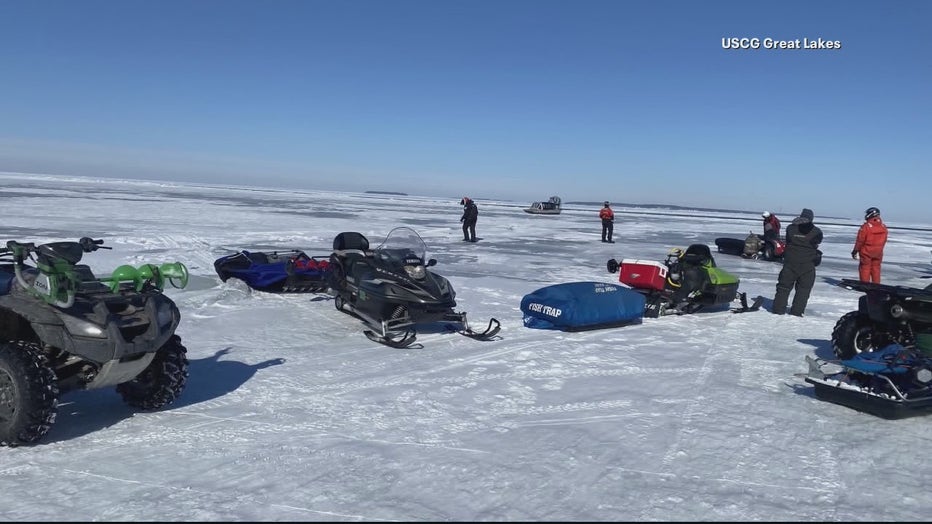How the Coast Guard rescued 18 from Lake Erie ice floe
SOUTHFIELD, Mich. (FOX 2) - Michigan is bordered on nearly every edge by four of the five Great Lakes, including Lake Erie. On Sunday, the Coast Guard had to rescue at least 18 people from Lake Erie after they were trapped on an ice floe.
The 18 snowmobilers were trapped on the floating ice sheet around 1 p.m. without a way to get back to land. U.S. Coast Guard Lt. Jermiah Schiessel said the helicopter from Air Station Detroit was nearby when someone else spotted them off the coast of Catawba Island.
"It was actually a civilian plane that spotted them and radioed in to our helicopter and then our helicopter was right there on the scene," Schissel said. "We deployed a rescue swimmer down with a hydraulic hoist and they are able to interview the victims and assess whether or not they’re injured."
With everyone unhurt, 7 were hoisted into a rescue basket on the coast guard helicopter while the rest were pulled aboard a coast guard boat and a Good Samaritan's vessel.
"They were very happy to go back to their families at night and we had a very we are thankful for a very happy ending," Schiessel said.
This is the second such rescue in as many weeks in the same place. Just last week, a group of seven snowmobilers and their ATVs were stranded and had to be rescued by the Coast Guard.
For people who plan to go on the ice, it's important to make sure you've planned ahead for everything. Schiessel said there were warnings not to go on the ice due to warming temperatures.
"Because of the environmental aspects are so unpredictable and variable we highly discourage it," he said. "One of those ways is to monitor the weather and warnings. And in this case there were several warnings by the National Weather Service about southern winds coming up breaking off ice."
The Coast Guard is reminding people to take precautions before seeking recreational opportunities as well as dressing appropriately for the water, not air, temperature. They also remind people to wear a life jacket, have some form of electronic communication and carry icepicks or screwdrivers to break the ice in the event of a self-rescue.
"You really only have about 60 seconds to control your breathing when you suddenly find yourself submerged in icy water. Then about 10 minutes of functional time and one hour of consciousness," Schiessel said.


